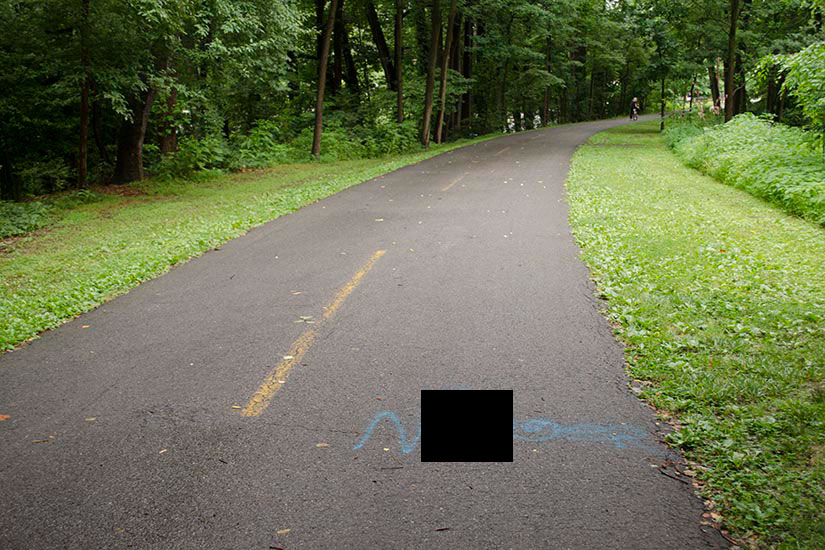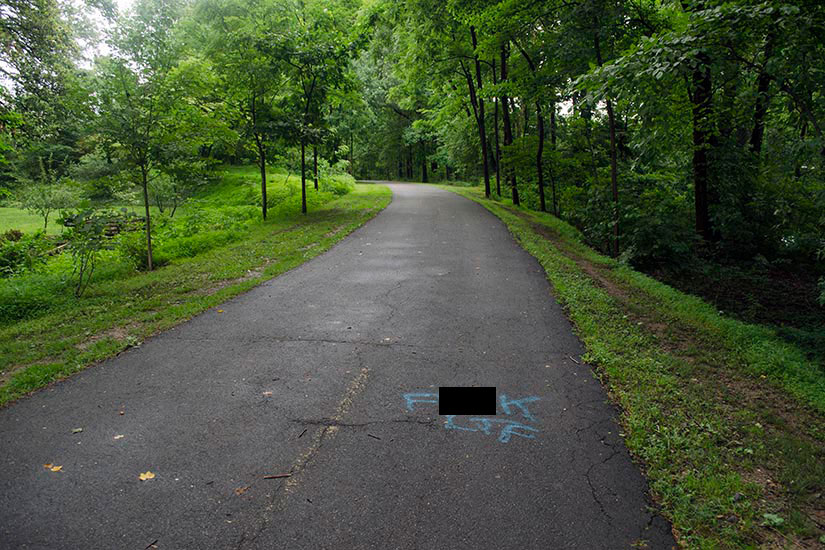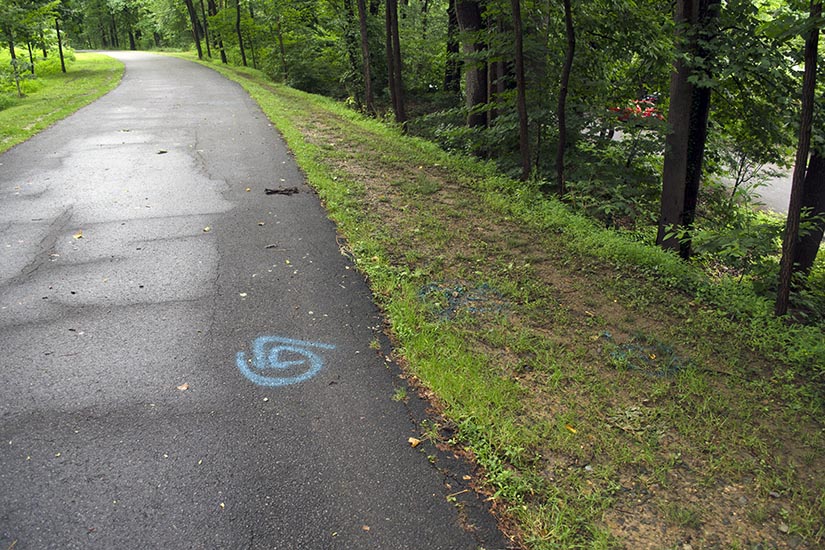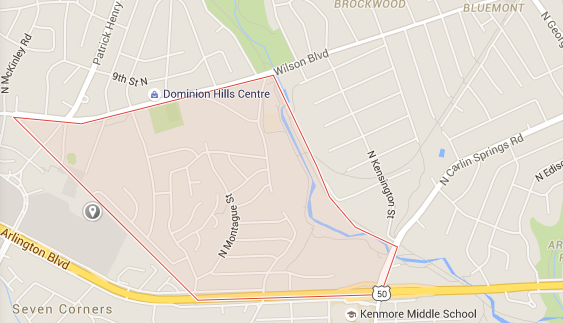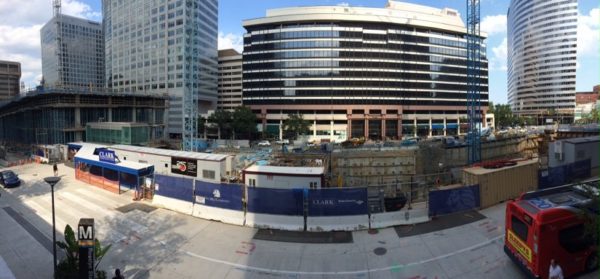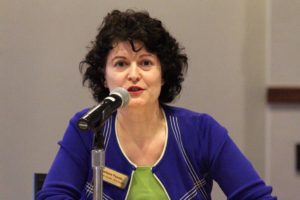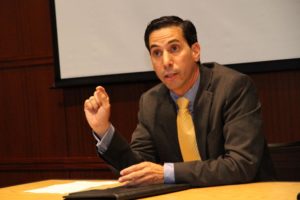 (Updated at 4:45 p.m.) Disgruntled Arlington cab drivers staged a protest on Monday (November 26), ahead of the County Board’s expected Tuesday vote on granting more taxi certificates. The drivers are accusing the county of racism.
(Updated at 4:45 p.m.) Disgruntled Arlington cab drivers staged a protest on Monday (November 26), ahead of the County Board’s expected Tuesday vote on granting more taxi certificates. The drivers are accusing the county of racism.
Members of Arlington United Taxi Operators (AUTO) and Tenants and Workers United (TWU) took part in the protest, which was staged to highlight claims of unfair labor practices by Arlington cab companies and to show that drivers’ human rights had been violated based on their national origin.
ARLnow.com requested details regarding examples of human rights violations, but did not receive information about specific incidents. Instead, a TWU representative said the basics included “ad hoc firings, arbitrary changing of working conditions, and the fact that drivers are being bound to a single company.”
“Nearly every single cab driver is an immigrant in Arlington, most are from Africa,” added Wesley Aten, Interim Executive Director for Tenants and Workers United.
AUTO and TWU also issued a press release yesterday stating the intent of several drivers to speak out at last night’s County Board meeting. The release said, “It is a racist system that looks the other way as long as white customers and a white monopoly company benefit.”
The groups provided what they call “reasonable and fair suggested adjustments” to the county’s taxi code. In a joint memo to the Board members, AUTO and TWU wrote the following:
“It is not in the public’s best interest to expand the reach of an already dysfunctional taxicab system that makes cabdrivers part of the working poor… Arlington County has created a taxicab system which — among many other important flaws — forces many cabdrivers to work as many as 13 hours a day, 7 days a week just to make livable earnings because some cab companies use mandatory operating fees to take as much as $14,000 of each driver’s annual earnings for themselves.
The irony in all of this is that a work week that commonly exceeds 60 hours produces exhausted cabdrivers. In turn, tired drivers decrease rider safety.
Yet, despite these facts, under your direction the Board will not let cabdrivers and riders have a public conversation or debate over the existing structure of the industry. Your choice to silence the people on this very important issue is not in line with ‘the Arlington way’ and we are deeply disappointed that you have chosen to protect a system that forces nearly 800 cabdrivers to work for poverty-level earnings.”
They assert that County Board Chair Mary Hynes refused to adequately review their proposed amendments to the taxi code and would not hold a public hearing on practices within the taxi industry. Hynes refuted the claim at Tuesday’s Board meeting, saying the conversation has not ended.
“We are not willing to change the ordinance in the way in which you suggested we do it,” Hynes said. “While I absolutely agree we have not resolved the issues that you raise about how many hours people drive or the impacts of that, or any of that, nor do I think we should think those are off the table.”
Hynes said she met with the group of concerned drivers at least three times between April and October. She said other Board members also met with the drivers, indicating the drivers’ statements about not having access to Board members was inaccurate.
“There was no inability to talk to Board members, all of that happened,” Hynes said.
Hynes further elaborated in a written statement:
“Since AUTO submitted its proposed changes in July 2012 to the County’s taxi cab ordinance, County Board Members and County staff have held numerous meetings with AUTO leaders. After giving the proposal serious consideration, the County Board ultimately decided against a rewrite of the taxi ordinance. Although a vote to not move forward is not required, I decided to have the County Board discuss this decision in public and take a public vote, which we did in October. This request for ordinance changes is not unique. Every year, the County Board receives 10-20 requests from individuals and groups seeking various County ordinance changes. Moving forward on any one of these requests always requires three or more members’ support for the potential change.”
 In addition to addressing the proposed changes to the county taxi code, the drivers’ groups requested that Board members deny a plan to allow 55 additional taxis to operate in Arlington, as recommended by county staff. Of particular discussion during Tuesday’s meeting was whether or not to approve certificates for Arlington-based start-up EV Taxicabs.
In addition to addressing the proposed changes to the county taxi code, the drivers’ groups requested that Board members deny a plan to allow 55 additional taxis to operate in Arlington, as recommended by county staff. Of particular discussion during Tuesday’s meeting was whether or not to approve certificates for Arlington-based start-up EV Taxicabs.
Last month, County Manager Barbara Donnellan recommended that EV receive permits to operate 40 cabs, which would be all-electric and include free WiFi and iPads for passenger use.
As the taxi discussion stretched in excess of two hours and the meeting inched toward 2:00 a.m., Board members decided to carry over the discussion and vote on taxi related items at the December meeting.


